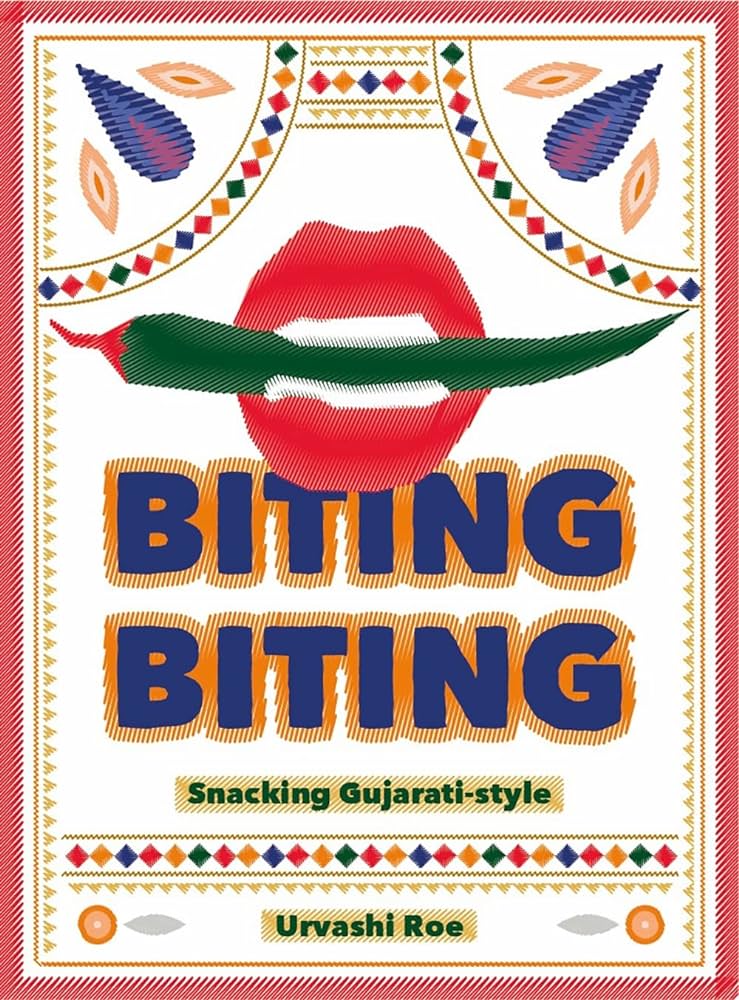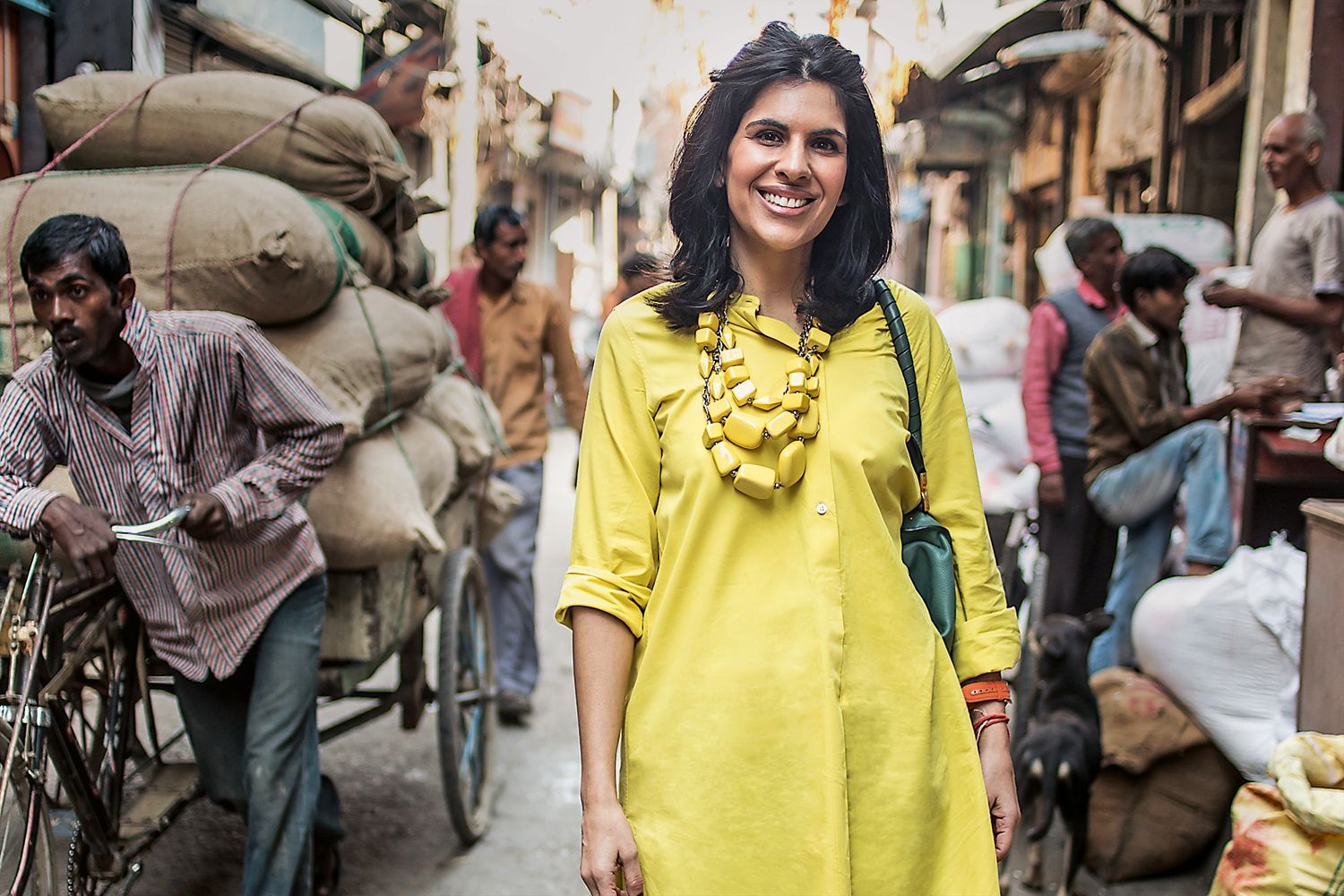(December 14, 2023) A passionate cook who holds a challenging corporate job, Urvashi Roe is the author of Biting Biting, based on Gujarati cuisine.
Born in Dodoma, Tanzania, growing up in the UK, studying in Germany and France, Urvashi Roe had a sheltered upbringing with a close family and relatives always milling around. An early love for food was instilled in her with home-cooked traditional Gujarati food like dal, bhaath, rotli and shaak – dal, rice, chapati and vegetable curry. In an exclusive with Global Indian, Urvashi recalls, “I was raised in a sheltered environment, and we only ever ate what mom made at home. When I went to study in Germany and later, France, it opened up a whole new world of food for me. Until then, I might have eaten a pizza maybe three or four times in my life.”
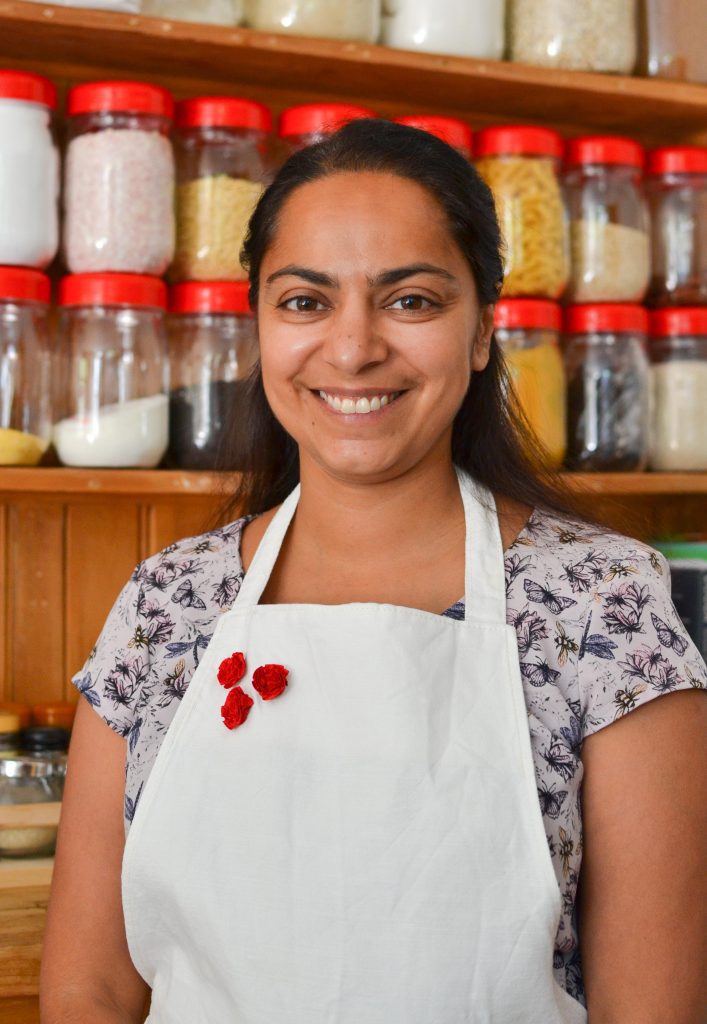
Urvashi Roe
The Original Spice Girl
Still, cooking her own kind of food while at university was a challenge. She says, “As kids, we begged our parents for cheese sandwiches to take to school as that was considered normal. But, when I actually started eating cheese sandwiches, I found them very boring and craved spice. I would add chevro [chivda] and green chutney or lasun ni chutney to spice it up.” Additionally, she had learnt to cook quantities that would suffice for at least 15-20 people, given her large family. So, when she had to cook only for herself, it took her a while to whittle down portions of ingredients.
Familiar with cooking, as her mother insisted that Urvashi and her two sisters learn how to cook, exposure to the different breads of Germany, and the many desserts of France only fanned Urvashi’s love for food. She however, credits her husband Tone with exposing her to various cuisines which led to her experimenting with styles and ingredients. He is British, and they first met in England on a training course before living together in Japan for four years. She continues to keep a regular day job and has held various marketing roles. She currently works with one of the world’s top four management consultancies looking after digital transformation. She loves her work too, but outside of that she says, “Food takes centre stage.” Her husband, Tone was a chef when they first met, and has introduced her to various other foods during their travels together. “On my 40th birthday I made a list of 40 new things I’d do as I didn’t want to get boring in middle age. One thing led to another and on a whim, I applied to participate in the Great British Bake Off and was chosen as one of the 12 finalists,” she says. This was back in 2011, when the show wasn’t as big a deal as it is now, but it served its purpose as a launchpad. “I started my blog, got on social media, started working with brands, doing demos on stage and running supper clubs. It was fantastic,” she smiles.
Journey from Cafés to Supper Clubs
Then, Urvashi Roe also took a chance on running the café at her local library in Enfield, where she lives. She recalls, “I had taken a break from work to settle my girls into secondary school, but was getting a bit bored with freelance writing. I saw the notice inviting people to apply for the contract for running the café. I applied and I won the tender. At The Library Café, I wanted to create a community space that served eco-friendly coffee made well. I sourced everything for the café locally, including the staff; a few things came from further afield, like vegetables from Europe and on occasion, special ingredients from India and the Far East. The menu I created had everything made fresh everyday – good, homemade food; nothing was pre-packaged. We had a soup of the day, salads, cakes, sandwiches as you’d expect from a café, but specials included Channa Masala on toast or dal with fresh baked naan…. And because I feel strongly about breast-feeding mothers, we always had a table available for them to sit down and freshly pureed vegetables for them to feed their babies. But I’d never run a food business before, and towards the end, I got sucked into the non-creative part of running the café and that was not what I’d wanted. So, when the contract came to an end, I didn’t renew it.”
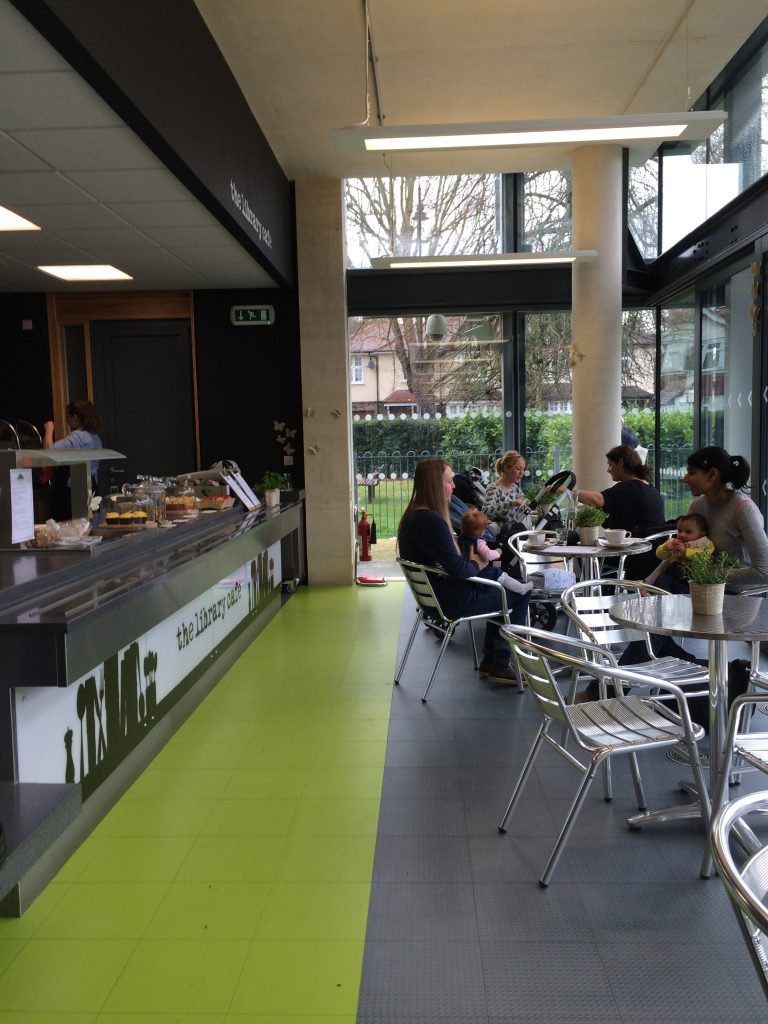
The Library Café
Urvashie says she learnt a lot from the experience. “I learnt to say no and the value of time management. Now I cherry pick assignments outside of my corporate job and only do work that adds value and is meaningful for me. I get several offers from brands to develop recipes for them, but I say no because the purpose and brand fit needs to align with my values and aspirations. For example, working with a hotel to curate a Gujarati menu based on the book would be right up my street, but creating recipe cards to force fit an ingredient I rarely use, would not. I would rather organise a supper club for charity, because I enjoy feeding people and seeing them enjoy Gujarati food they have never tasted before.”
Biting into Books
Writing a book, Urvashi reiterates was always going to be a part of her culinary journey. She says, “It was frustrating that books on Indian food here were always generic and few explored regional cuisines. Additionally, Gujarati food is very simple, and there is often zero wastage as we recycle the leftovers into new dishes. I wanted to showcase that frugal, no-waste culture as well, because in Britain, I see so much food going waste.”
The book, titled Biting Biting, which reads like a memoir almost, is replete with fond memories of her relatives, some of whom have even inspired her own cooking styles. It is unpretentious in its vocabulary, with Urvashi sticking to the Gujarati names of the dishes, though an explanation in English follows right after. Uncles, aunts, cousins, grandparents… the warmth of these connections which shape who we become are generously mentioned in the book. She even attributes a few recipes to the ones who made them.
From batata vada to bhakarvadi, patras to dhoklas and dabeli and other farsan items, main course dishes and lots of tips to help amateurs, the book is a like a close friend nudging you to start cooking. Recipes range from snacks that can be had with drinks, to ones that are a throwback to Indian street food; as well as those made from leftovers. And because she herself likes to experiment with ingredients and methods, there are some that are a medley of cultures, tastes, and ingredients, thrown in.
There is gentle humour too, in describing the Gujarati community, and she has even made fun of herself. The dhokla recipe has ingredients listed as ‘serves two, or one greedy Urvashi’.
With a book on Gujarati food finally on the bookshelves in Britain, where does Urvashi see culinary trends headed? She says, “I think the concept of eating comfort food is never going to go away. If a restaurant can serve comfort food cooked well, like a simple dal and rice, it would continue to strike a chord with people. Though it sounds simple, it is really hard, especially since people like to over-complicate everything. I really hope that people always have places to go where they can eat what gives them comfort, at any time of day with any cuisine.”
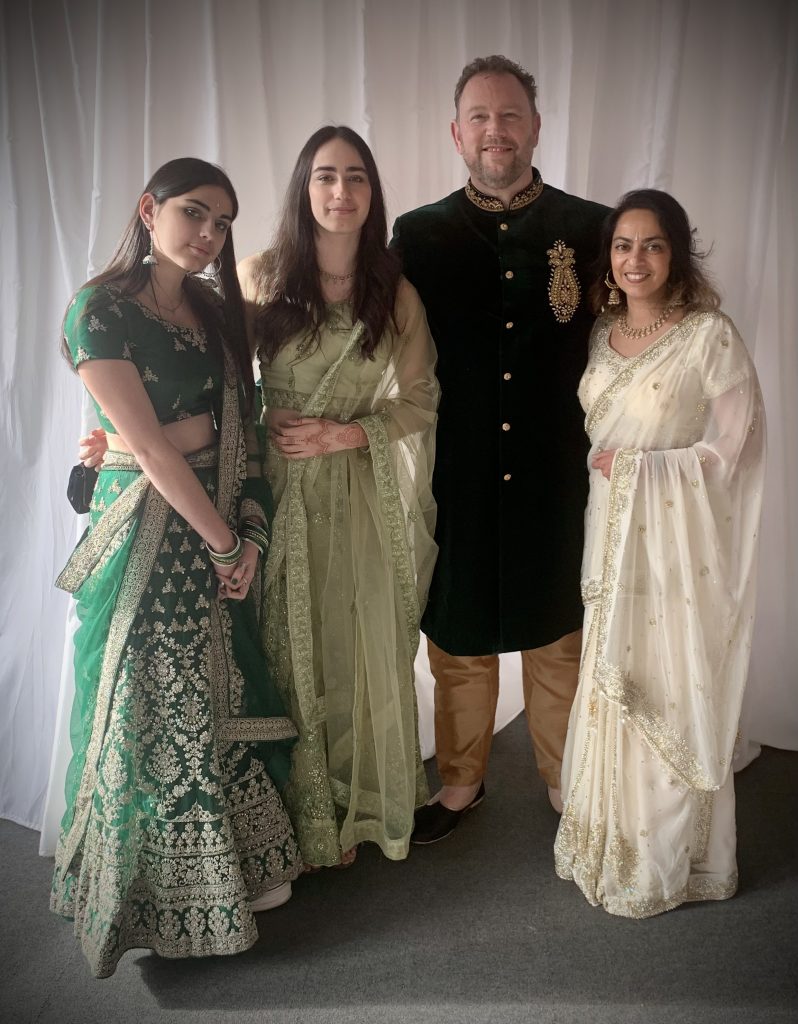
Urvashi with her husband and daughters
She believes that just like yoga and meditation are now global wellness practices, eating with mindfulness is a growing trend towards personal well-being. “People are always in a rush when they eat nowadays, and I feel that we are moving back to being a bit more intentional about what we put into our bodies; and eating at a pace that enables us to truly savour the food but also the benefits it brings.”
While travelling, Urvashi likes to eat at:
- The Fish Market in Essaouira, Morocco – it’s the most beautiful place with a freshly caught fish cooked over ramshackle grills served simply with tomato and onion salad and great Moroccan bread.
- The Bombay Canteen in Mumbai – I always make a stop here on work trips to the city. Last time the Seabass Ceviche Papri Chaat blew me away!
- The Grand Central Oyster Bar in New York – I love the old charm of the location and the hustle of sitting at the bar slurping oysters from all over the US.
- Maison Marou in Ho Chi Minh city – One of my favourite patisseries in the world! The chocolate and coffee are sourced from Vietnam and the Paris Brest is divine.
- Tempura Kaneko Hannasuke in Nihombashi in Tokyo– A traditional tempura place in an old wooden building amidst modern skyscrapers and it serves the best tempura sets in the city for about $10.
Follow Urvashi Roe on Instagram.


